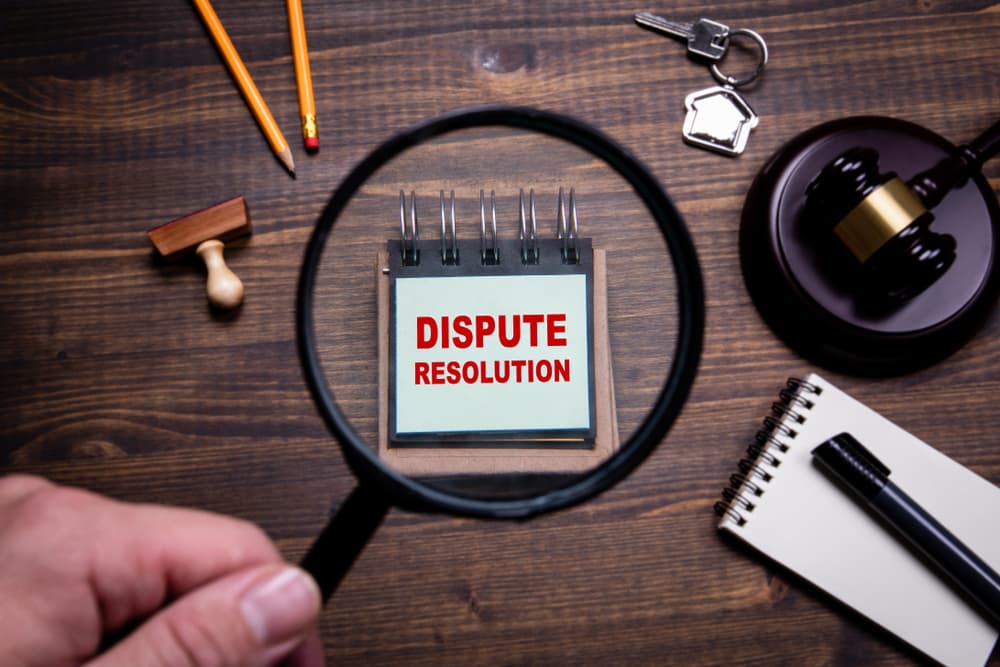The Fair Credit Reporting Act (FCRA), established in 1970, is a cornerstone of consumer credit rights in the United States.
It governs the collection, sharing, and use of consumer credit information. Consumers and businesses must comply with the FCRA, as it ensures the accuracy, fairness, and privacy of credit reporting.
Understanding these regulations is vital for maintaining consumer trust and ethical standards in financial dealings.
If inaccurate information on your credit report has caused you harm, contact an experienced FCRA lawyer to find out your rights and any compensation you may be entitled to receive.
1. Consumer Rights to Access and Dispute Credit Reports
By law, every consumer can receive one free credit report each year from each of the major credit reporting agencies.
In 2020, in response to the financial upheaval caused by the COVID-19 pandemic, the three major credit reporting agencies declared that they would offer free reports on a weekly basis as a temporary measure.
This initiative, initially introduced to assist millions during the economic challenges, has since been extended twice and has now become a permanent offering. Access to credit reports allows consumers to review and verify the information for accuracy.
This review process is essential in identifying any potential errors, outdated information, or identity theft that could adversely affect their credit score and financial opportunities.
Consumers have the power to dispute inaccuracies directly with the credit reporting agencies. Whether it's an error in personal information, credit accounts, or payment history, consumers can challenge these inaccuracies to ensure their credit report reflects a true and fair representation of their credit history.
The process for filing disputes is designed to be consumer-friendly, offering multiple channels such as online, mail, or phone.
This flexibility ensures that all consumers, regardless of their access to technology or preference, can exercise their rights.
Upon receiving a dispute, credit reporting agencies are obligated to promptly investigate and resolve the issues.
Credit reporting agencies must correct any verified inaccuracies, providing consumers with the assurance that their concerns are addressed and their credit reports are accurate.
2. Business Responsibilities in Reporting and Use of Credit Information
Credit reporting agencies have a fundamental responsibility to ensure the accuracy and safeguard the privacy of the credit information they report.
This duty is not just for compliance but for maintaining the integrity of the credit reporting system as a whole.
Businesses that rely on credit reports for decision-making purposes, such as employers and lenders, must operate with a high level of transparency.
They must obtain explicit consent from individuals before accessing their credit reports.
Consent is essential to respect consumer privacy and ensure the ethical use of sensitive information
In instances where a business decision adversely affects an individual based on their credit report (such as loan denial or employment rejection), the business must provide an adverse action notice.
This notice should inform the individual about the decision, the role of the credit report in that decision, and their rights to obtain and dispute the information contained in the report.
These responsibilities underscore a broader commitment to fair and ethical practices in handling credit information.
Businesses must navigate the delicate balance between using credit data for legitimate purposes and upholding the rights and privacy of individuals.
3. Legal Repercussions for Violating FCRA Guidelines
Non-compliance with FCRA guidelines can lead to significant legal consequences for businesses.
This can include lawsuits from affected individuals or groups, as well as penalties, fines, and potentially criminal charges imposed by regulatory bodies like the FTC and CFPB.
These legal actions underscore the importance of adhering to FCRA standards.
Violating FCRA guidelines can result in severe legal consequences for businesses. These can range from civil lawsuits filed by individuals or groups in a class action affected by the violation to stringent penalties and fines imposed by regulatory bodies.
The financial repercussions can be substantial. Fines imposed for FCRA violations can reach significant amounts, putting a considerable strain on a business's finances.
In cases of willful non-compliance, statutory damages can range from $100 to $1,000 per violation, and in class action lawsuits, these figures can accumulate rapidly.
In extreme cases of non-compliance, especially where there is evidence of willful neglect or fraudulent behavior, businesses and their executives may face criminal charges, which lead to hefty fines and potential imprisonment.
Agencies like the Federal Trade Commission (FTC) and the Consumer Financial Protection Bureau (CFPB) are vigilant in their enforcement of the FCRA.
They have the authority to conduct investigations, levy fines, and take legal action against entities that fail to comply with the law.
Beyond financial penalties, non-compliance can severely damage a business's reputation. The public nature of legal actions and the associated negative publicity can lead to a loss of consumer trust and long-lasting effects on business operations.
4. Mandatory Dispute Resolution Process

The FCRA mandates a dispute resolution process that credit reporting agencies and information providers must follow.
This process requires credit reporting agencies to correct or delete any inaccurate, incomplete, or unverifiable information discovered during an investigation. This ensures the integrity of the credit reporting system and protects consumer rights.
With the increased use of chatbots for disputes, technical limitations can lead to significant negative outcomes, impacting customer trust and potentially leading to violations of federal consumer protection laws.
While chatbots help in reducing costs and handling basic inquiries, their effectiveness diminishes with complex issues like dispute resolution.
Chatbots, often limited in understanding specific words or syntax, may struggle to recognize and resolve disputes effectively. This limitation is particularly concerning in cases where customers dispute transactions or incorrect information.
The FCRA dispute resolution process must ensure easy access to human customer service representatives, avoiding over-reliance on chatbots.
With the risks of inaccurate data generation and privacy attacks through chatbots, the dispute resolution process must prioritize data accuracy and secure handling of personally identifiable information.
5. Best Practices for Ongoing Compliance of Businesses
To maintain ongoing compliance with the FCRA, businesses must regularly train employees on FCRA regulations and monitor their credit reporting processes.
In addition, credit reporting agencies, background screeners, and other furnishers of credit reports need to keep a compliance manual.
An FCRA Compliance Manual is used to document a business's adherence to FCRA standards, outlining specific procedures for credit reporting and dispute resolution.
The manual should include investigative report procedures, guidelines for permissible purposes and report content, procedures for consumer disputes and reinvestigations, as well as specific requirements for employment-related reports.
If a business or credit reporting agency does not keep a compliance manual and a violation occurs, they may face increased liability due to the lack of documented "reasonable procedures" to demonstrate their efforts to comply with the FCRA.
This absence of a formal compliance framework can make it challenging to defend against legal actions or regulatory penalties.
Contact a Fair Credit Reporting Act Lawyer
Achieving accuracy in your credit report often goes beyond simply spotting and reporting errors.
Why Choose Kazerouni Law Group for Your FCRA Case?
At Kazerouni Law Group, we recognize the challenges in rectifying credit report inaccuracies. Our team has successfully recovered over $1 billion for clients nationwide and we offer free initial consultations.
Contacting us puts you in touch with our skilled attorneys who will closely examine your situation and assess the feasibility of an FCRA claim.
Connect With Us Today
Secure your financial future by reaching out for a no-commitment discussion about your case.
Via Phone: Reach us at 800-778-2065 during standard business hours for a case discussion.
Online: Contact a fair debt collection lawyer online for your free credit report violation evaluation.
What to Expect in Your Free Consultation
In this initial consultation, we'll explore the potential for an FCRA claim. Should we identify a violation, we will outline your legal options and guide you toward a resolution, aiming to positively influence your credit report status.
Commitment to Confidentiality
Upholding confidentiality is a top priority, offering you reassurance as you restore your financial well-being.
Get Help Today

The earlier you get in touch, the quicker we can start defending your rights. By proactively seeking counsel from seasoned consumer protection lawyers, you take a stand for your rights and work towards removing unjust negative information from your credit report.
Join forces with us to demystify the complexities of the Fair Credit Reporting Act. Call 800-778-2065 to begin and discover how we can help you today